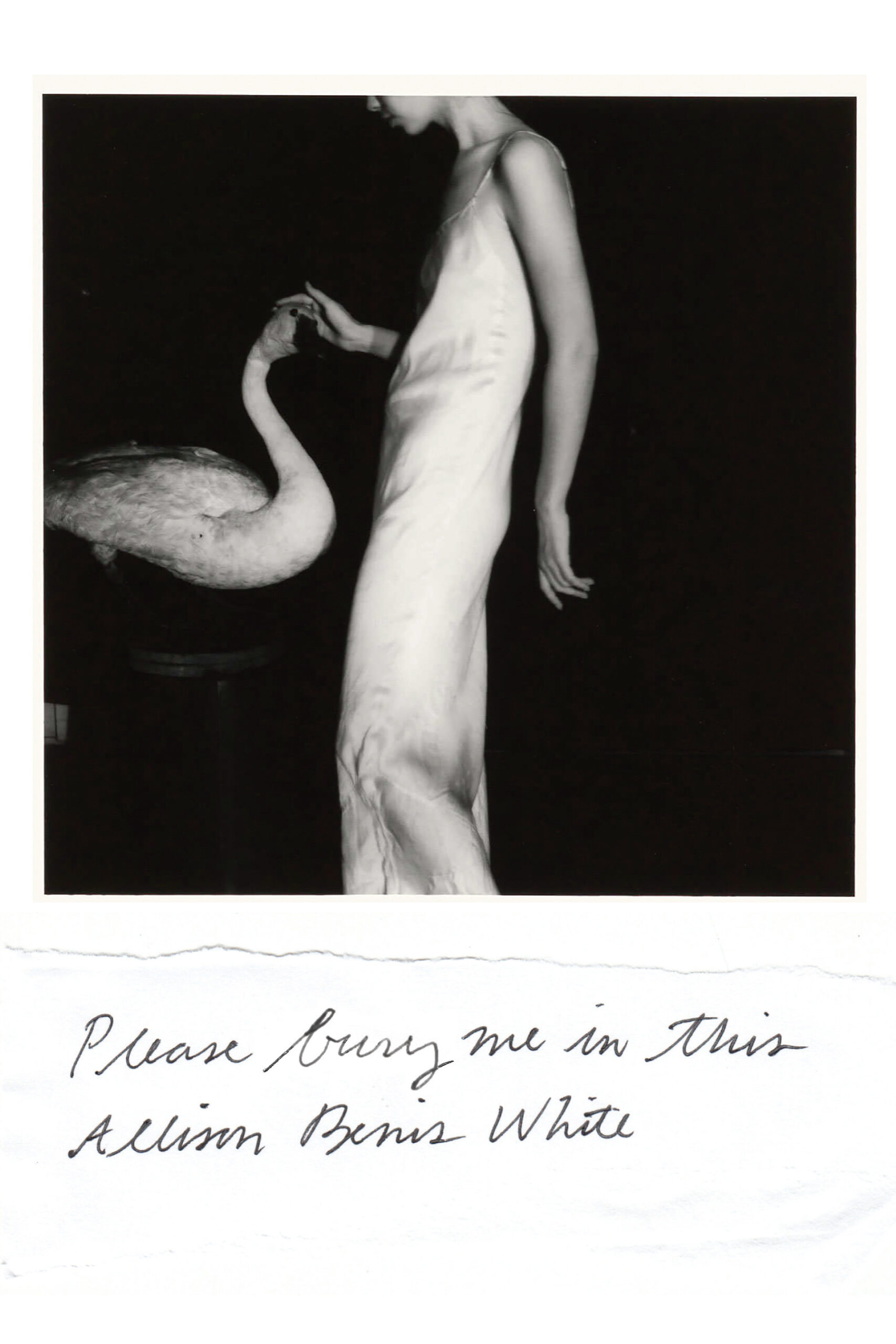
paper • 72 pages • 15.95
ISBN-13: 978-1-935536-83-3
Please Bury Me in This by Allison Benis White was selected as Publishers Weekly’s Book of the Week.
Please Bury Me in This by Allison Benis White is the winner of the 2018 UNT Rilke Prize.
Please Bury Me in This by Allison Benis White is the Foreword INDIES 2017 Silver Winner for Poetry.
Watch a Special Video from the Author
Please Bury Me in This is a series of letters. The speaker grieves the death of her father and the loss of several women to suicide while contemplating her own death and the nature of language as a means of human connection that transcends our temporal lives. This book is also concerned with the intergenerational trauma of the children of Holocaust survivors.
from Please Bury Me in This:
Dear Kitty, Dear God, Dear Lucifer.
I cut my hair off this morning, placed the long blond braid in an envelope.
There is only one arc: suffering, transformation.
Dear Linda, Sexton wrote to her daughter on a flight to St. Louis, I love you.
In other words, these words, their spectacular lack.
“Allison Benis White is a poet driven by duende, what Federico García Lorca called ‘the true struggle…’” — Idra Novey
“… Her delicate and elegant furor scribendi reads like a lucid dream in which mortality—the wonder of it, as well as its attendant terrors—is made palpable…. This book haunts.”— Amy Newman
“…Please Bury Me in This is, again, in White’s compelling words, ‘the softest howl.’”— Lynn Emanuel
“This brilliant book-length collection of prose poems transforms a death into a haunting. Small Porcelain Head is written into the fragility, the already shattered state of loss…The landscape of these poems recalls a musical score where despair flees and chases itself eternally…I was mesmerized.”— Claudia Rankine, judge, Four Way Books Levis Prize in Poetry
“Poetry has always wrestled with death as both dark lure and terrifying unknown, and White’s contribution is heartfelt and true, both deeply personal and embracing.” — Library Journal Read the full review here.
“White’s courageous and provocative collection inspires hope by reminding readers that strength can be found in the most desolate places: “What is more beautiful than the hopeless singing?”— Publishers Weekly Read the full review here.
“As is the nature of anything sublime, White’s collection of poems combats easy synopsis or concise abbreviation. I’m inclined to call them elegies of a sort, if, as Mary Jo Bang suggests, we understand that the objective of an elegy is ‘to rebreathe life into what the gone once was.’ But the elegy that extends throughout Please Bury Me in This is as much about the haunting insufficiency of language as it is about the cruelty and greed of time and the disunity with which it can frame one’s life. White’s poems have no interest in ribbon-tying or putting everything in its right place. There are no bright, right places — that is grief. The beauty and the power of these poems, then, lies in the acknowledgement of this and the persistence to search anyhow; a gesturing, a reaching toward, that constitutes its own species of expression; its own grammar of grief.” — Electric Lit Read the full review
“For White, what is truly meaningful resides in the aperture between two words, the threshold between rooms in ‘the museum of light.'” — Los Angeles Review of Books Read the full review
“A book-length poem of rare insight + tenderness.” — Postcard ReviewsRead the full review
“I’m generally fascinated by poetry collections that espouse a tone and a style and that sustain the tone and style over the duration of the collection. In that regard, Allison Benis White’s Please Bury Me in This is beautiful, spare, and full of gorgeous silences that leave me bereft.” — Oliver de la Paz Read the full review
“…The entire collection dwells on the variation of absence in White’s life, and the language she uses is just as lyrical, moving, and original as in her earlier work. Like White, we survive, and after reading her poems, the reader is left pondering what it means to be a survivor, to live, to be alive, and in order to do so, one feels compelled to read White’s poems over and over again.” Read the full review